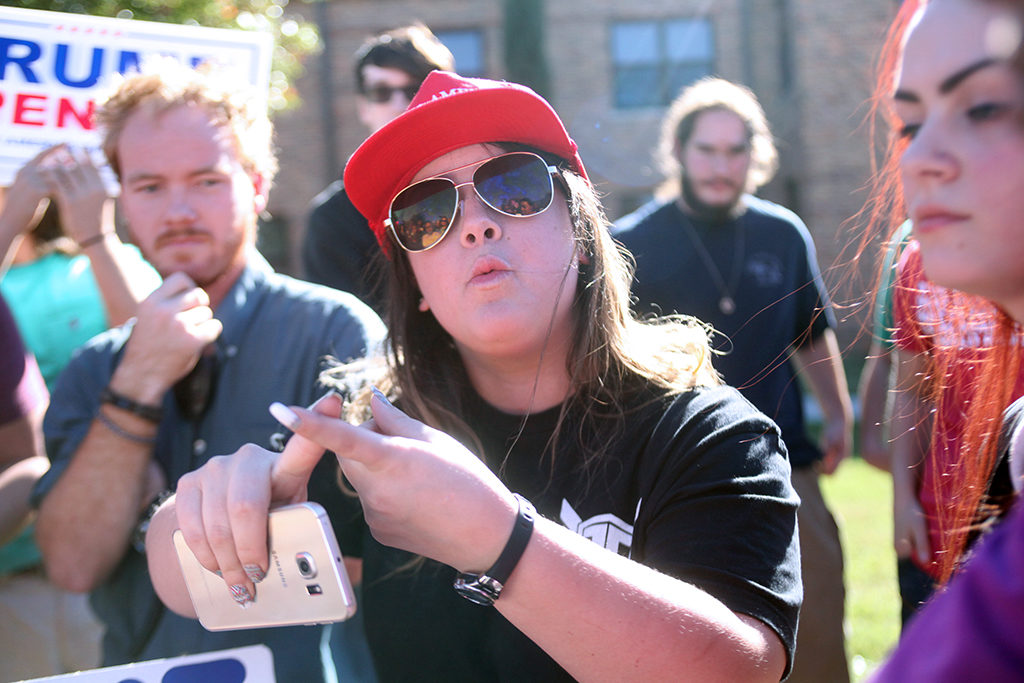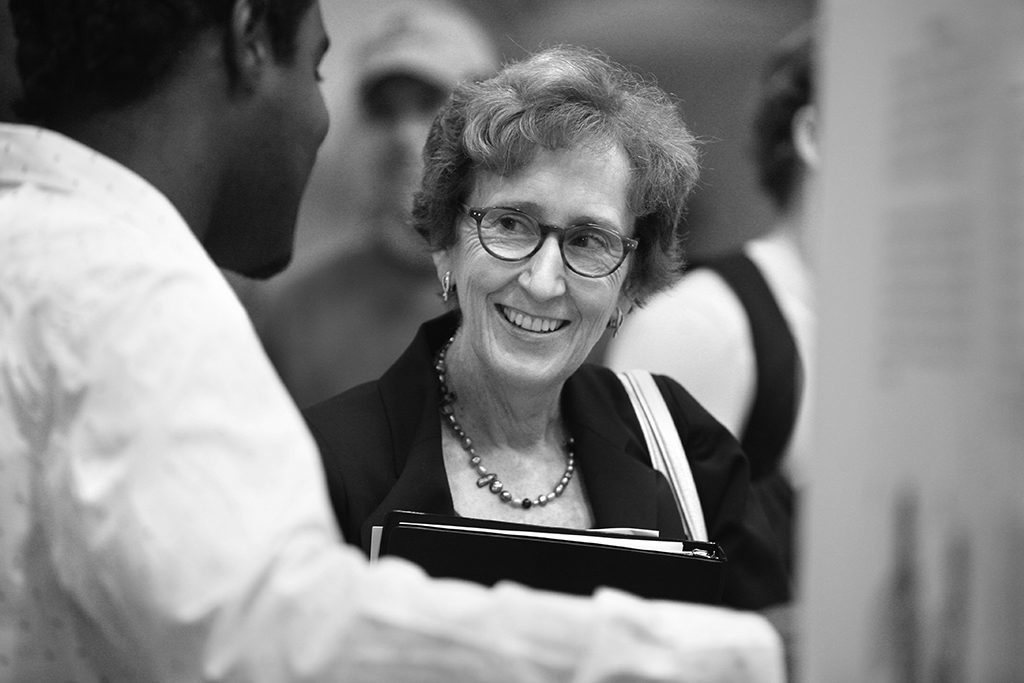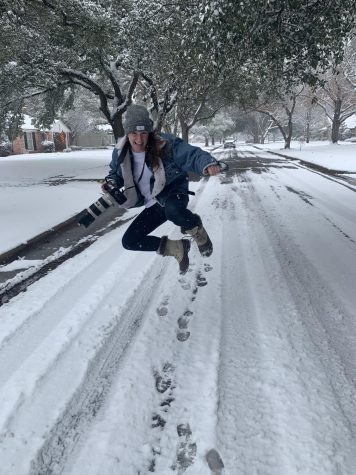
As the nations of the world made their responses to U.S. President Donald Trump‘s executive order regarding immigration, university administration was quick to do the same.
SENATOR’S RESPONSE
At 3:13 p.m., staff member Collin McLochlin, who works for Senator John Cornyn, sent an email to University President Suzanne Shipley in response to her statement earlier in the day.
Knowing that the President’s recent executive order might be causing disruption for international students, staff, and faculty who might be in the middle of travel, I wanted to reach out and offer assistance from our office. Should you become aware of anyone experiencing travel disruptions, please have them use our Immigration Privacy Release form. Once the form is completed, it can be emailed directly to me or faxed to 972-23-2110 along with a quick description of their travel difficulties. Senator Cornyn is happy to offer his caseworkers assistance to make an inquiry with the relevant agency/department. I hope this is helpful. Please let me know if you have any questions.
IMPACT ON MWSU MINIMAL
Shipley, who said she believes that students, faculty, and staff should feel that the university is behind them if any troubles arise, wasted little in addressing the matter.
“When I was coming back from a conference, I read about the executive order and demonstrations in the airports. My first thought was, ‘Do we have people caught up in this?’ and immediately I contacted Dr. [Keith] Lamb,” Shipley said. “I wanted to know if we’d been contacted by anyone from the university who was having issues. It wasn’t so much about students, or faculty, or staff – it was about everyone.”
Shipley said that when we didn’t have anyone facing the challenge, she said she thought it was still important for the campus to know that administrators were paying attention to this.
“We’re watching it, and we’re willing to help where we can. It was a word of caution to people thinking about trying, and if people haven’t noticed, there’s a potential difficulty, and they need to be careful about leaving,” she said.
And she said the actions taken in the White House or in Austin definitely could have an impact on Midwestern State.
“Since the election most people in higher education have known that there is going to be more of an impact on international faculty and students. Anyone thinking of coming here is going to have to factor in the changing dynamic around immigration, and I’ve seen that numerous times in my career. It hasn’t been a Republican or Democrat situation. It’s more an issue of war and peace – political dynamics. Higher education is always caught in the middle when situations arise that threaten the free travel of our community. We’re an industry that’s probably more dependent on foreign influence than most others. We’re a very internationalized economy, so you really can’t separate us out by nationalities, so I just wanted to take the simple step of coming to say that we’re watching this.”
According to Elizabeth Ysasi, international immigration specialist, the impact on the university is anticipated to be minor.
“Some members of administration consulted yesterday and decided that to issue a statement like this was in the university’s best interest,” Ysasi said. “We’re not expecting a large direct impact on the students that could potentially be affected. I think, too often, people forget that immigration is a complex process, and these students were made aware of certain travel bans before an executive order was even made.”
Office of Study Abroad Administrative Assistant Dena Hardin says she doesn’t anticipate any problems or concerns that could affect the Study Abroad program.
“Most students who participate in the program are U.S. passport holders, anyway. We have a few students from China who may have to apply for a student Visa, but I really don’t think it poses any kind of concern for the students interested in the program.
According to Ysasi, there are only three students enrolled in the university from the affected countries that are not classified as permanent residents of the U.S., and no claims of direct concern have been made.
“All citizens have always had to go through extreme background checks and protocols that determine if a person’s intention matches up with the Visa they’re applying for,” Ysasi said. “An executive order of this nature brings more attention to that. Whether or not it’s an extreme measure is something people have to decide for themselves. The major concern lies with potential future students. Where are we going from here? Will there be more bans? We have to wait and see where these policies go, but MSU remains a public university that celebrates inclusion and diversity and I believe we will continue to do that.”
Ysasi pointed out that any students who may have concerns should seek to use the resources available to them through the Office of International Services.
SHIPLEY’S STATEMENT
At 11:11 a.m., University President Suzanne Shipley issued a statement regarding U.S. President Donald Trump’s executive order regarding immigration.

I am writing today to provide information concerning the recent executive order Protecting the Nation From Foreign Terrorist Entry Into the United States. This order limits immigration and entry into the United States and has the potential to impact international students, faculty, staff, and alumni of Midwestern State University.
While those directly impacted by the executive order at MSU are small in number, their well-being and sense of security is our primary concern at this time. To this end, we are contacting those in our university community directly affected, and offering support and guidance. We are coordinating with the Office of International Services and are in contact with other universities, national associations, and immigration experts to seek clarity on some of the issues and questions that are of concern. We will continue to update you as we learn more.
The executive order itself involves suspension of entry into the United States for immigrants and nonimmigrants from Iran, Iraq, Libya, Somalia, Sudan, Syria and Yemen, except for those traveling on diplomatic visas, North Atlantic Treaty Organization visas, C-2 visas for travel to the United Nations, and G-1, G-2, G-3, and G-4 visas. If you are a citizen of one of the seven nations listed in the executive order and leave the United States for any reason, you will not be able to return during the temporary ban. Others traveling outside of the United States may experience visa delays and, given the fluid nature of this period, may experience changed immigration rules upon re-entry. If you have questions about travel-related issues or immigration policies and practices, please contact the Office of International Services at 940-397-4568.
Several on-campus resources will provide support to directly and indirectly affected individuals. Additionally, the Counseling Center, Residence Life, and the Dean of Students are available for general support and direction. Ten percent of our student population is international, from some 53 different countries. Our diversity is an important part of who we are as a university and offers us countless enriching opportunities.
I want to assure you that MSU is fully committed to supporting all members of our community, and we will remain true to our values of mutual respect, civility, cooperation, and social justice. We will support and care for one another so that all members of our community have the same opportunity to succeed.
OTHER UNIVERSITY PRESIDENTS ALSO RESPOND
- University of Texas at Austin
- Texas A&M University — College Station
- Texas Tech University
- Texas State University

















